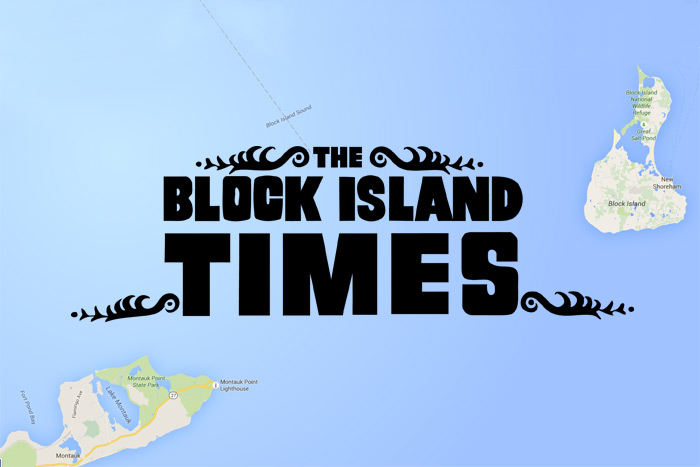Block Island Times Sold: A Newspaper Founded by Dan's Papers – What the Hell Are They Doing?

Not long after I founded Dan’s Papers in the bedroom of my parent’s house in Montauk as a teenager, one of my advertisers, Bob King, called me up to say that if I put a newspaper on Block Island, he would put an ad in it. Block Island, although part of Rhode Island, is just offshore of Montauk. It was easy enough for me to see out there. But I’d never been there.
King owned a charter airline called Montauk-Caribbean Airline, a name with clear ramifications. He’d fly the planes down for the winter, then up for the summer.
“I want to expand my service to Block Island,” he told me, “so I flew to the airport there. Guess what? Block Island has no newspaper. Start a newspaper there, and I’ll put an ad in it.”
He also offered to fly me there for the day. I went.
I took a cab from the airport to Main Street and counted the stores. There were 49. I went to New Harbor. There were half a dozen more there. There were a few big old hotels. This was not nearly enough business to support a newspaper.
I did find there was a monthly newsletter there. It was called the “Block Island Hooter.” (I thought it a charming name. There’s a Block Island Lighthouse. Hooter did not have the meaning it has today.) And I met the woman who ran it. She said she was shutting it down.
“Meet 10 islanders and they give you 20 opinions,” she said. “I can’t take it anymore.”
She did put me in touch with a woman on the island who she did think would be interested. I took a cab to her house. Her name was Margaret Cabell Self; she was about 70 and a retired Virginia horsewoman. She said she’d be very interested to be the editor.
“What I would do,” I told her, “is publish six issues in the 12 weeks of the summer. It would be for the tourists. We’d print 5,000 copies and put them out free. But I’d need a lot of advertising to make it go.”
She offered to see all 54 merchants in town. I told her she’d need to sell almost all of them. I thought this very unlikely, but frankly I had fallen in love with the island. I’d put the paper out even if it meant losing money the first few years. I left her a “dummy,” a hand-drawn 12-page newspaper with a logo I had made with a magic marker, a map of the island I had drawn in the back, and blank squares where ads would go.
Two days later she called me.
“How’d you make out?” I asked.
“I sold them.”
“How many?”
“All of them.”
The Block Island Times came out with its first issue on July 1, 1970. It had the logo I had drawn. It said “One of Dan’s Papers” below the masthead. It was a big hit. Inside were articles for the summer visitors and articles for the locals. For the rest of that summer, and for the next 10 summers, I published it with “Nonie,” as Mrs. Self was called, at the helm, and for the next 10 years, after Nonie retired, with Peter and Shirley Wood at the helm.
Peter thought he could make “The BIT” a year-round newspaper, but I scoffed at the idea. There were maybe a thousand people on the island year-round. But he surprised me. By setting up a table in front of the post office on Block Island every day for a week, he sold an annual subscription to the paper to practically everybody who came in to get their mail. I think he got $90 out of each of them. Block Island would have its newspaper.
In the years that followed, The Block Island Times became both respected and beloved, not only by Block Islanders but also by serious people on the mainland of Rhode Island and by people in the newspaper business in the Northeast. Its columns were available to all. Its reporters covered politics, sports, police news and all local issues, defending their island to the last. I recall a battle that went on for years about whether the island should either ban or encourage mainland motor scooter rental companies who had come to the island. Renters would get on them, having never ridden a scooter before, and get injured. But it was an effective and charming way to get around and it was a lucrative business.
Eventually, the Woods urged me to sell them the newspaper. I wasn’t really around very much. There were two occasions when I flew over at the request of first Nonie and then the Woods to be part of a “meet the publisher” event. But few people came.
So over the years, I just let them run it. It was still a tiny publication—once a week, maybe 24 pages at the most. Finally, I agreed to sell it to the Woods. We settled on a price of $85,000.
Since that sale 30 years ago, I have been getting copies of The Block Island Times every week because I founded it. I sometimes read the things in it, and some of it is interesting and some I don’t know anything about. It’s very well written, they still use my logo, and it’s nice to see that they kept my name listed on the masthead as having founded the paper in 1970. Nonie is also honored. I go to Block Island on occasion, most recently last summer for a lunch with the latest publishers, Fraser and Betty Lang—it was their 10th year—at a nearby seafood restaurant. The paper is now around 60 pages in the summer, largely for the tourists, the rest of the year about half that size. As I said, New Englanders love their weekly newspapers. Many have national reputations. The Vineyard Gazette. The Cape Codder. The Block Island Times is one of them.
Last week, I learned that The Block Island Times was sold by the Langs to a man who has ties to the owner of a Las Vegas gambling casino operation. According to some people I know on the island, the rumors are that $1.5 million was paid for the paper, but both the Langs and the new owners told me it was much less than that. The man had also recently bought, through different entities, several other Connecticut newspapers, including the New Britain Herald and The Bristol Press.
Regardless of any connections with Las Vegas, this man, Michael Schroeder, is well regarded in the media business, having worked at Newsday and elsewhere. He’s the Treasurer of the New England Press Association, and has 35 years experience. The Langs told me they felt he would be an excellent choice to be their successor.
But among other things, he was employed as manager of News + Media Capital Group LLC, a corporation reported to be backed by the family of Las Vegas casino billionaire Sheldon Adelson. And herein hangs a tale.
About two weeks before the sale of The Block Island Times was concluded, an unusual 1,900-word article appeared in two of the publications that Schroeder heads up in Connecticut—The Bristol Press and the New Britain Herald—which many residents there feel were saved from extinction by Schroeder when he bought them. In this article, reporter Edward Clarkin wrote of the terrible state of the Clark County Court system in Nevada, with special attention paid to the behavior exhibited by one particular judge there by the name of Elizabeth Gonzales.
It seemed very strange that a piece about something so far away would be published in their papers. It called attention to itself. What was going on?
Steve Collins, a reporter who covered the City of Bristol for the The Bristol Press, resigned after learning this article about Las Vegas courts was published. In an interview with the Erik Wemple Blog on The Washington Post after his resignation, he said he knew nothing about this story before it ran. Other people searched high and low to learn who Edward Clarkin was, according to The Hartford Courant. Nobody could find anybody with that name who lived in Connecticut.
Further investigation by other sources revealed the following.
On Schroeder’s watch as manager, News + Media Capital Group, owned by members of the Adelson family, purchased the largest newspaper in Las Vegas—the Las Vegas Review-Journal—for $140 million.
Adelson and his company Las Vegas Sands Corp. were being sued in a Clark County, Nevada courtroom for half a billion dollars by Steven Jacobs, who ran the Sands operation on the island of Macau just off mainland China, claiming that he was wrongfully fired. Jacobs says he was attempting to break casino ties to Chinese gangland connections.
The judge in the case required Sands China to pay $250,000 for withholding documents, and later dressed down Adelson after he argued with her about not answering a question on the stand, noting “Sir, you don’t get to argue with me. You understand that?” The judge was Elizabeth Gonzales.
The story made The New York Times, just as the sale of The Block Island Times went through. Someone, it seemed, was messing with the classic journalistic “separation of church and state,” the supposed division between the business and editorial side of a privately run newspaper that people expect.
The story that ran about the court system in Las Vegas also included quotes from several people about Judge Gonzales and the Clark County Court System. Among them were a professor at Quinnipiac University School of Law in Connecticut and the CEO of the Michigan Economic Development Corporation, each of whom, according to The Hartford Courant, said they didn’t know anything about the article or talk to any reporter about it.
Schroeder finally did address this issue. He apologized. He said that Edward Clarkin was a fictitious name used because reporting “came from multiple sources” and anonymity was required, and that there were lapses “in the level of reporting.”
I’ve got to talk to Schroeder. I want to ask him, what are you doing with my newspaper?
According to a staffer at The Block Island Times, Schroeder is at the editor’s office on Block Island every Friday to conduct a meet and greet and seems dedicated to doing a good job for Block Island.
I guess this will all work out.
And it also reminds me of a famous essay written by Mark Twain after he had taken over a newspaper in a small town in Nevada during the Civil War era. He, as the new publisher, stands up on a chair, and facing his staff for the first time tells them that this paper will be turning over a new leaf, will be doing no favors for anybody, will no longer write things it does not believe in, will write only for truth, justice and all the good things in America.
Then he looks down at the staff and says this:
“Whichever one of you gets the free opera tickets every week, from now on, they go to me.”



